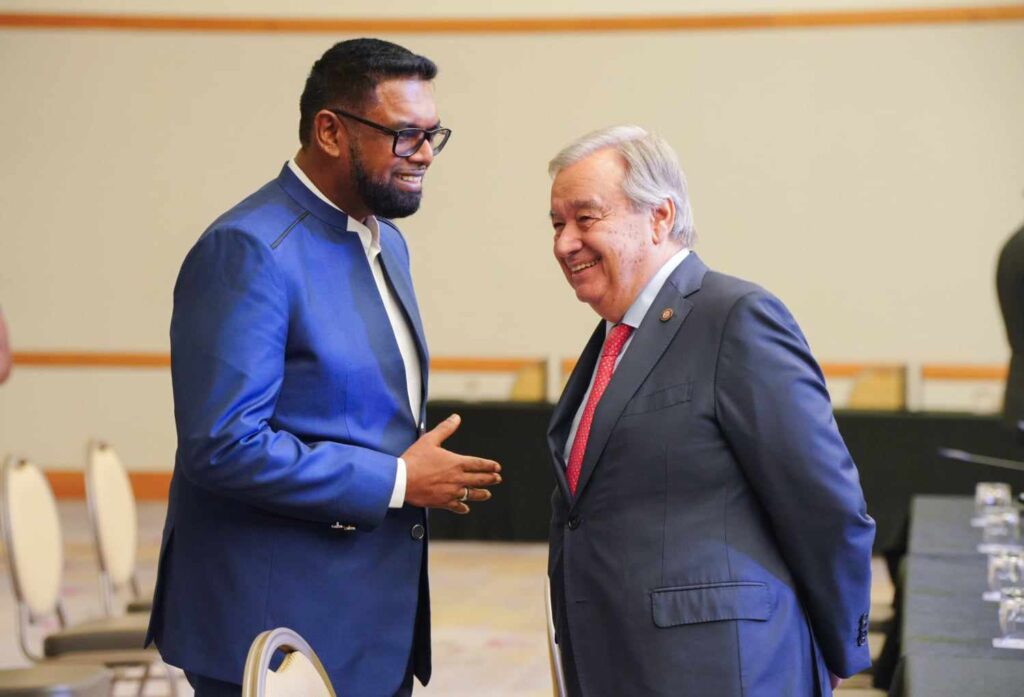
By Fareeza Haniff in Port of Spain, Trinidad & Tobago
“The security situation is appalling, humanitarian needs are soaring, and there is not yet the political solution in sight. But I came with hope and optimism.
“It is impossible to look at the crisis without seeing the long shadow of centuries of colonial exploitation, extortion, dictatorship and other screaming injustices.”
Those were the opening words of the Secretary-General of the United Nations, António Guterres, as he addressed the 45th meeting of Heads of Government of the Caribbean Community (CARICOM) in Port of Spain. Noting that he just came from Haiti, the Secretary-General urged all to help “ease the suffering of the Haitian people.”

Recent reports indicate that there has been an escalation of gang violence, and political instability in Haiti. The United Nations Children’s Fund’s Haiti representative Bruno Maes had said that at least 2.6 million are expected to need immediate lifesaving assistance this year as the overlapping crises leave Haiti’s children in the worst position since the earthquake of 2010.
Ariel Henry, who has taken over as acting president since the assassination of Haiti’s President Jovenel Moïse in July 2021, has pleaded for international military support but not many have responded. Based on reports, Jamaica is the only country so far to publicly offer troops.
Aljazeera reported that last September, gangs worsened the humanitarian situation by blocking a fuel terminal for six weeks, halting most economic activity. The UN Security Council in October sanctioned Haiti’s most powerful gangster who was accused of leading the blockade to protest government fuel subsidy cuts.
In this regard, the UN boss told CARICOM leaders that he will continue to push for a “robust international security force – authorised by the Security Council – to be able to help the Haitian national police to defeat and dismantle the gangs.”
He reiterated his call for all partners to increase support for the national police in the form of financing, training, and equipment.
“Let’s be clear: There can be no lasting security without strengthened democratic institutions – and there can be no strong democratic institutions without a drastic improvement in the security situation,” Guterres contended.
Further, he said the challenges in Haiti require greater engagement and greater solidarity, highlighting “that is precisely the founding spirit of CARICOM.”
Meanwhile, the outgoing Chairman of CARICOM, Philip David, who is also the Prime Minister of The Bahamas, also spoke about the crisis in Haiti. He said, “In Haiti, beyond the pressing issue of security, there is the long-term issue of restoring the country to that of a fully-functioning, democratic state. This fundamental principle – that the people of the CARICOM region should have both a ‘say’ and a role in their governance – is part of the bedrock of our community.”
Since 2021, the situation in Haiti has featured prominently in talks among CARICOM Heads of Government. Actions needed to restore public order, facilitate democratic elections and provide much-needed humanitarian aid in Haiti are expected to be part of this week’s engagements in Trinidad.




